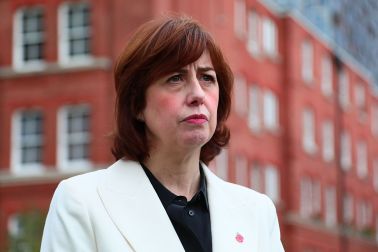It seems an astonishing statistic but 99.6 per cent of radio is broadcast live, delivered straight from the studio mike to your personal loudspeaker: 99.6 per cent! Compared with TV, which must be at least 80 per cent recorded, this is an extraordinary indicator of how radio is the on-message medium right now, able to deliver immediate content, live and interactive.
Yet a lot of radio listening is not done in real time these days, but later, after transmission, via the internet, the iPlayer, podcasts and downloads. We could experience a live connection but find ourselves switching on to a recorded moment. This is all about to be revolutionised with the launch earlier this month of a new version of iPlayer. We can now tune straight into all the BBC radio stations via this new ‘iPlayer Radio’ and choose either to listen to the ‘live’ schedule or look for a programme in the archive. As Daniel Danker, the general manager for BBC On Demand, claims, ‘every station will be able to write its own experience’ on this new kind of iPlayer. You can listen to what’s on at the moment, or ‘swipe upwards’ through the options to find the programme you missed yesterday — all on the same interface.
Trouble is this is essentially ‘internet’ radio, and if you want to tune in wherever you may be, on the sofa, in the car, in bed, you’ll need to buy the app — and have the right kind of smartphone. You’ll also need to fiddle around with swiping the pad, spinning the dial, and waiting for the connection. (There’s quite a time-lag between radio and iPlayer Radio.)
I’ll always be a fan of just pressing a button and finding yourself instantly somewhere you’ve never been before, or listening in to a conversation between people you would not normally come across or be interested in. On Thursday night by chance I just happened to catch The Bottom Line (Radio 4, Thursdays, repeated Saturdays). Quite often I switch this programme off, ‘workplace issues’ not being of burning interest to someone whose work station consists of a desk, a lamp, a chair and computer surrounded by piles of unfiled papers and books. However, something about the ever-enthusiastic Evan Davies’s introduction kept me listening and soon I was hooked.
His guests that night were Willie Walsh, the airline executive, Kim Winser, who transformed Pringle of Scotland, and Peter Bamford of Superdry. I had not the slightest interest in the theme of their conversation — how to get your products noticed in an overcrowded market — but they were such an intriguing combination of personalities, Walsh, so razor-sharp and wolf-like, Winser, so practical and confident, without being annoyingly assertive, Bamford, sounding much more of a bungler than he could possibly be. By the end I felt as if I’d been to a board meeting and now knew how to ensure that flight to Amsterdam was filled, and that diamond-chequered sweater in pale lemon was worn by James Bond. (The programme was produced by Ben Crighton and edited by Innes Bowen.)
If so much radio is live, though, it does make me wonder how much less drama (which of course has to be recorded) there is now on air than, say, 20 years ago. Plays, books, short stories are a staple part of the listening experience; we need to ensure their survival. Without them, BBC Radio would be just like any other commercial operator. On Saturday afternoon, there was a cracker of a production by Alison Hindell, who adapted Howard Brenton’s play about the Shelley/Byron ménage à quatre, Bloody Poetry, for the Radio 4 Gothic Imagination season.
There we were on the shores of Lake Geneva in May 1816, a violent storm raging outside, lightning flashing across the windowpane as the candles flicker and shadows flit across the wall. Mary Shelley knows by now that her husband is having it off with her step-sister Claire Clairmont, who’s not ashamed to admit that she’s actually carrying Byron’s child. Mary is desperately worried about money and the health of her two young children, who have rattled across the Alps in a rackety, windblown carriage. In the shadows Mary sees the ghosts of her own future experience and imagines the monster who will preoccupy her thoughts, ‘the hideous phantom of a man’. Frankenstein, and his horrific creation, is never mentioned but his story haunts the play as the ménage veers from ecstatic conversations about love, poetry, metaphysical kites to the final tragedy of Shelley drowning.
‘Visualisation’ is the brand-new future for radio; providing pictures to go with all this internet streaming. But this play would have been dreadful if we’d been able to see it. The story is so overdramatic, overwritten, overhyped, with a shipwreck, a seizure, a drowning, quite apart from the death of two children and the sheer ghastliness of both Byron and Shelley. Yet Mary’s bitter pain came straight through to us like a shot in the dark. ‘The words. Oh, you can do the words,’ she sighs as Shelley chases after another utopian fallacy.





Comments